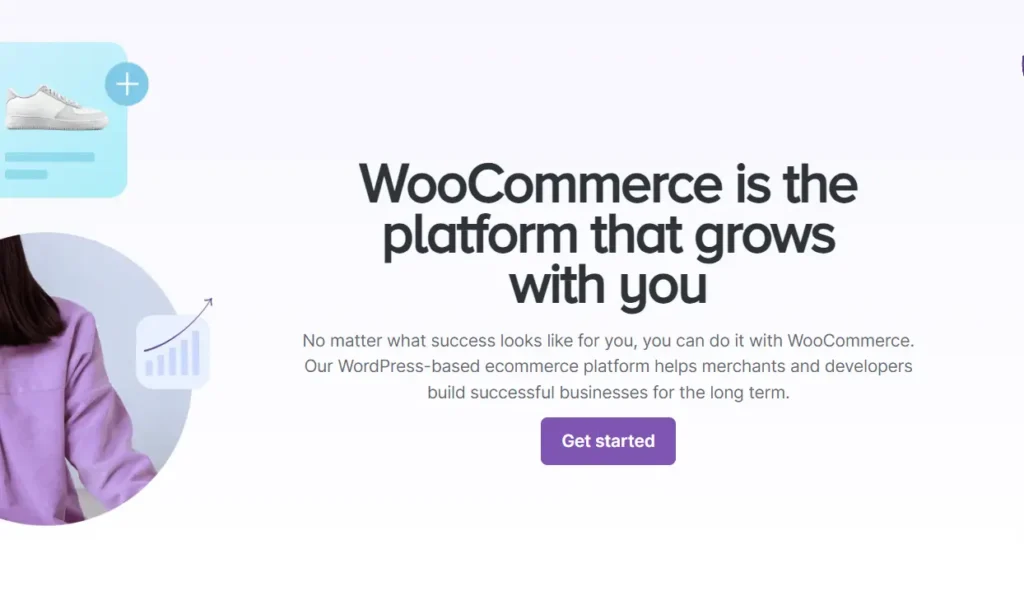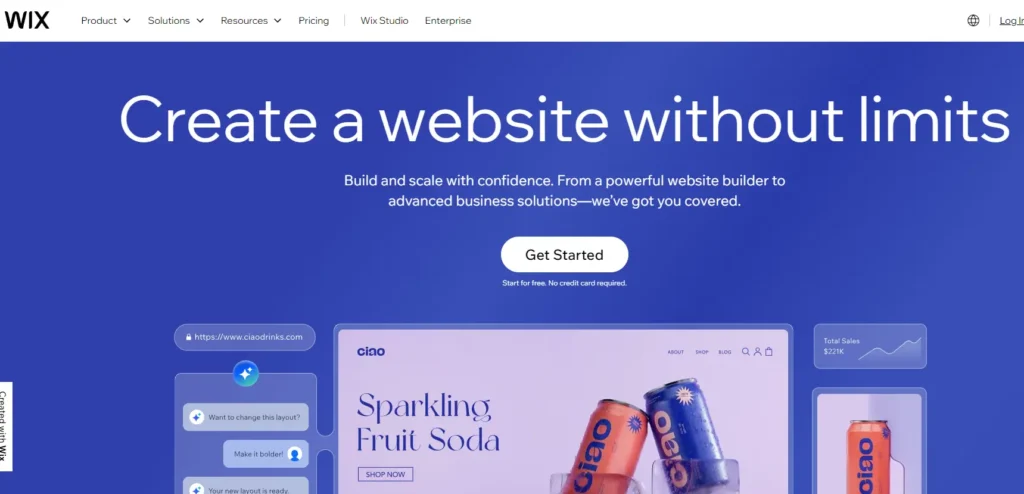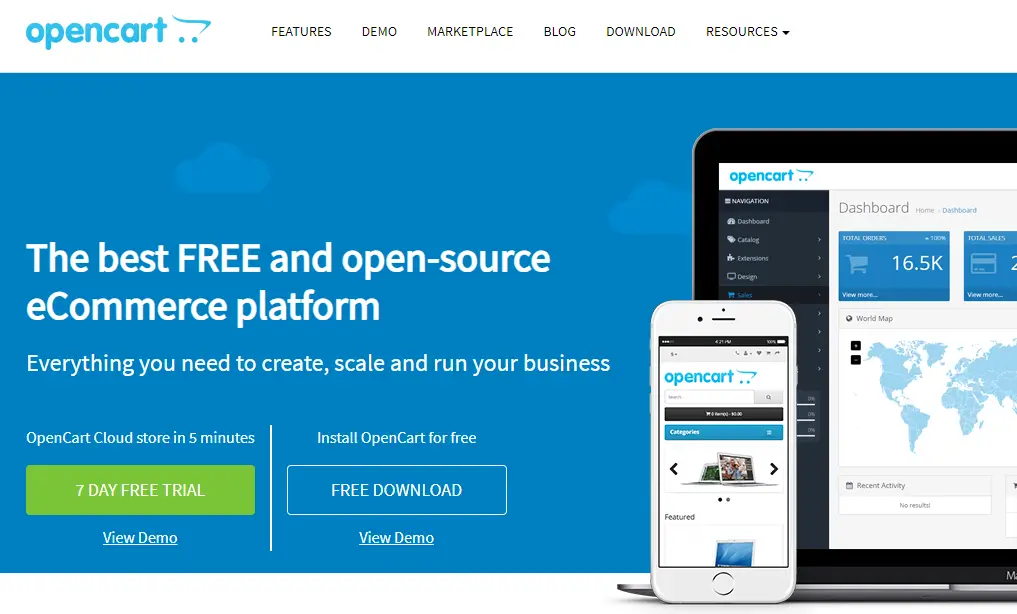In today’s digital age, e-commerce has become an integral part of the global retail landscape. For businesses looking to establish or expand their online presence, choosing the right e-commerce platform is crucial. This article provides an in-depth comparison of eight leading e-commerce platforms: Shopify, Magento/Adobe Commerce, WooCommerce, Wix, Squarespace, PrestaShop, BigCommerce, and OpenCart. We’ll explore their features, pros and cons, pricing, and suitability for different business needs.
- Shopify
- Magento/Adobe Commerce
- WooCommerce
- Wix
- Squarespace
- PrestaShop
- BigCommerce
- OpenCart
- Comparison Summary
- Frequently Asked Questions about E-commerce Platforms
- What is the easiest e-commerce platform for beginners?
- Which e-commerce platform is best for large businesses?
- What’s the most cost-effective e-commerce solution?
- Which platform offers the best SEO capabilities?
- What e-commerce platform is best for international selling?
- Which platform offers the most design flexibility?
- What’s the best e-commerce platform for a small business?
- Conclusion
1. Shopify

Shopify is one of the most popular e-commerce platforms, known for its ease of use and comprehensive features.
Pros:
- User-friendly interface, suitable for beginners
- Extensive app store for additional functionality
- 24/7 customer support
- Built-in SEO and marketing tools
- Secure and reliable hosting included
- Multiple payment gateway options
Cons:
- Transaction fees unless using Shopify Payments
- Limited customization options compared to open-source platforms
- Can become expensive with add-ons and higher-tier plans
Pricing:
- Basic Shopify: $29/month
- Shopify: $79/month
- Advanced Shopify: $299/month
- Enterprise-grade Shopify Plus: Custom pricing, typically starting at $2,000/month
Shopify is ideal for small to medium-sized businesses looking for an all-in-one solution with minimal technical expertise required.
2. Magento/Adobe Commerce

Magento, now Adobe Commerce, is a powerful open-source platform known for its flexibility and scalability.
Pros:
- Highly customizable and scalable
- Robust features for large catalogs and complex products
- Strong multi-store and multi-language capabilities
- Large community and extensive marketplace for extensions
Cons:
- Steep learning curve, requires technical expertise
- Can be resource-intensive, requiring powerful hosting
- Development and maintenance costs can be high
Pricing:
- Magento Open Source: Free (but hosting and development costs apply)
- Adobe Commerce: Custom pricing, typically starting at $22,000/year
Magento/Adobe Commerce is best suited for large businesses or enterprises with complex needs and the resources to support a more technically demanding platform.
3. WooCommerce
WooCommerce is a popular e-commerce plugin for WordPress, offering a flexible solution for businesses already familiar with WordPress.

Pros:
- Free and open-source
- Seamless integration with WordPress
- Highly customizable with numerous themes and plugins
- Large community support
- SEO-friendly
Cons:
- Requires separate hosting
- Can become complex with many plugins
- Performance may suffer with large stores without proper optimization
Pricing:
- WooCommerce plugin: Free
- Hosting, domain, and premium extensions: Varies (can range from $10 to $250+ per month)
WooCommerce is ideal for small to medium-sized businesses already using WordPress or those who want a customizable, cost-effective solution.
4. Wix
Wix is a website builder that includes e-commerce functionality, known for its ease of use and design flexibility.

Pros:
- User-friendly drag-and-drop interface
- Wide range of customizable templates
- Built-in SEO tools
- No transaction fees
- Integrated email marketing tools
Cons:
- Limited scalability for very large businesses
- Less flexibility compared to open-source platforms
- Can’t switch templates after site is published
Pricing (E-commerce plans):
- Business Basic: $27/month
- Business Unlimited: $32/month
- Business VIP: $59/month
Wix is suitable for small businesses or entrepreneurs looking for an easy-to-use platform with attractive designs and basic e-commerce functionality.
5. Squarespace
Squarespace is known for its sleek, modern designs and all-in-one platform approach.

Pros:
- Beautiful, professional templates
- User-friendly interface
- Built-in marketing and SEO tools
- Integrated analytics
- No transaction fees on higher-tier plans
Cons:
- Limited customization options compared to open-source platforms
- Fewer third-party integrations than some competitors
- Can be more expensive for basic e-commerce needs
Pricing (E-commerce plans):
- Business: $33/month
- Basic Commerce: $36/month
- Advanced Commerce: $65/month
Squarespace is ideal for creative professionals and small businesses prioritizing design and ease of use over advanced e-commerce features.
6. PrestaShop
PrestaShop is an open-source e-commerce solution popular in Europe and known for its flexibility.

Pros:
- Free and open-source
- Large selection of themes and modules
- Strong multi-language and multi-currency support
- Active community and marketplace
Cons:
- Requires technical knowledge to set up and maintain
- Quality of support can vary with community-based help
- Some essential features require paid add-ons
Pricing:
- PrestaShop software: Free
- Hosting, domain, and premium modules: Varies (can range from $20 to $100+ per month)
PrestaShop is well-suited for small to medium-sized businesses with some technical expertise, especially those operating in multiple European markets.
7. BigCommerce
BigCommerce is a fully-hosted e-commerce platform known for its robust features and scalability.

Pros:
- Strong out-of-the-box features
- No transaction fees
- Excellent SEO capabilities
- Multi-channel selling options
- Good scalability for growing businesses
Cons:
- Steeper learning curve than some competitors
- Annual sales limits on lower-tier plans
- Template customization can be challenging without coding knowledge
Pricing:
- Standard: $29.95/month
- Plus: $79.95/month
- Pro: $299.95/month
- Enterprise: Custom pricing
BigCommerce is ideal for fast-growing, mid-sized to large businesses looking for a feature-rich platform with strong SEO and multi-channel capabilities.
8. OpenCart
OpenCart is an open-source e-commerce platform known for its lightweight core and extensive marketplace.

Pros:
- Free and open-source
- Low resource requirements, suitable for shared hosting
- Large marketplace for extensions
- Multi-store functionality
- Good for international selling with multi-language and multi-currency support
Cons:
- Basic features may require extensions, increasing costs
- Limited built-in marketing tools
- Can require technical skills for customization and maintenance
Pricing:
- OpenCart software: Free
- Hosting, domain, and premium extensions: Varies (can range from $10 to $100+ per month)
OpenCart is suitable for small to medium-sized businesses with some technical expertise, particularly those looking for a cost-effective solution with international selling capabilities.
Comparison Summary
To help you make an informed decision, here’s a quick comparison of key factors across all platforms:
- Ease of Use:
- Beginner-Friendly: Shopify, Wix, Squarespace
- Moderate: BigCommerce, WooCommerce
- Technical Expertise Required: Magento/Adobe Commerce, PrestaShop, OpenCart
- Customization:
- Highly Customizable: Magento/Adobe Commerce, WooCommerce, PrestaShop
- Moderately Customizable: Shopify, BigCommerce, OpenCart
- Limited Customization: Wix, Squarespace
- Scalability:
- Highly Scalable: Magento/Adobe Commerce, BigCommerce, Shopify Plus
- Moderately Scalable: WooCommerce, Shopify, PrestaShop
- Limited Scalability: Wix, Squarespace, OpenCart
- Cost (considering both platform and potential additional costs):
- Low: OpenCart, WooCommerce
- Medium: Shopify, Wix, Squarespace, PrestaShop
- High: BigCommerce, Magento/Adobe Commerce
- Built-in Features:
- Extensive: BigCommerce, Shopify, Magento/Adobe Commerce
- Moderate: WooCommerce, PrestaShop, Squarespace
- Basic (may require extensions): Wix, OpenCart
- SEO Capabilities:
- Strong: BigCommerce, WooCommerce, Shopify
- Good: Magento/Adobe Commerce, Squarespace, PrestaShop
- Basic: Wix, OpenCart
- Multi-channel Selling:
- Extensive: Shopify, BigCommerce
- Good: Magento/Adobe Commerce, WooCommerce
- Limited: Wix, Squarespace, PrestaShop, OpenCart
Frequently Asked Questions about E-commerce Platforms
What is the easiest e-commerce platform for beginners?
For beginners, Shopify, Wix, and Squarespace are considered the easiest e-commerce platforms to use. They offer user-friendly interfaces, drag-and-drop design tools, and require minimal technical expertise to set up and manage an online store.
Which e-commerce platform is best for large businesses?
For large businesses or enterprises with complex needs, Magento/Adobe Commerce and BigCommerce are often the best choices. These platforms offer robust features, high customizability, and excellent scalability to handle large catalogs and high traffic volumes.
What’s the most cost-effective e-commerce solution?
WooCommerce and OpenCart are generally considered the most cost-effective e-commerce solutions. Both are free, open-source platforms, though you’ll need to factor in costs for hosting, domain, and potentially premium extensions. For businesses already using WordPress, WooCommerce can be particularly economical.
Which platform offers the best SEO capabilities?
BigCommerce, WooCommerce, and Shopify are known for their strong SEO capabilities. They offer features like customizable URLs, meta descriptions, and sitemaps. However, the effectiveness of SEO also depends on how well you optimize your content and site structure.
What e-commerce platform is best for international selling?
For international selling, PrestaShop and OpenCart are strong contenders due to their excellent multi-language and multi-currency support. Shopify and BigCommerce also offer robust features for international e-commerce, including automatic currency conversion and language localization.
Which platform offers the most design flexibility?
Magento/Adobe Commerce and WooCommerce offer the most design flexibility, as they are open-source platforms that allow for extensive customization. However, this flexibility often requires more technical expertise. For non-technical users, Shopify and BigCommerce offer a good balance of customization options and ease of use.
What’s the best e-commerce platform for a small business?
The best platform for a small business depends on specific needs, but Shopify is often recommended due to its ease of use, comprehensive features, and scalability. WooCommerce is another excellent option, especially for businesses already familiar with WordPress. Squarespace or Wix could be good choices for very small businesses prioritizing design and simplicity.
Conclusion
Choosing the right e-commerce platform depends on various factors including your business size, technical expertise, budget, and specific needs. Here are some general recommendations:
- For beginners or small businesses prioritizing ease of use: Shopify, Wix, or Squarespace
- For WordPress users or those wanting high customization on a budget: WooCommerce
- For large businesses or those with complex needs: Magento/Adobe Commerce or BigCommerce
- For businesses with international focus: PrestaShop or OpenCart
- For fast-growing mid-sized businesses: BigCommerce or Shopify
Remember, the best platform for you will depend on your specific requirements, budget, and long-term business goals. It’s worth taking the time to thoroughly evaluate your options, perhaps even trying out free trials where available, before making a decision. As your business grows and evolves, don’t be afraid to reassess your e-commerce platform needs and switch if necessary to support your business’s success.

